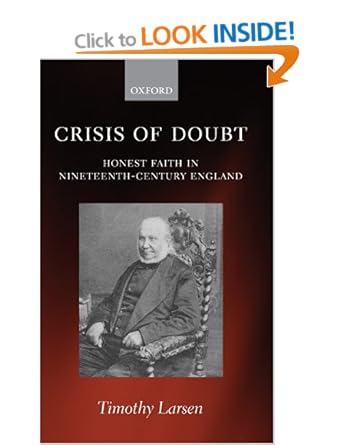
I first heard this story in seminary. In case you haven’t:
http://robertbsloan.com/2013/03/11/but-if-not-the-miracle-of-dunkirk/


I first heard this story in seminary. In case you haven’t:
http://robertbsloan.com/2013/03/11/but-if-not-the-miracle-of-dunkirk/
“Never make light of the king, even in your thoughts. And don’t make fun of the powerful, even in your own bedroom. For a little bird might deliver your message and tell them what you said.” (Ecclesiastes 10:2)
Here is a funny, but good example:
https://www.youtube.com/watch?v=0b9rOji_PWY&index=6&list=PLykzf464sU9-uj2DvWN3k3S6k_EPDw9pN

This past Sunday evening I was catching up with my dad. It turned out both of us had seen a little bit of the annual show PBS does to honor the military. My dad is a life-long conservative. He and my mom were very involved in trying to get Barry Goldwater elected. Even though I was young at the time, I still recall them going off to a dinner party/fundraiser for Goldwater at the Camelback resort.
In any case, my dad who served as an officer in the Navy during WWII is sick of war. And so am I. Both of us had to turn off the PBS special not because we don’t want to honor the soldiers, but because we don’t want to honor war. And the former many times seems to bleed effortlessly over into the latter. War is hell. Those three words are pregnant with meaning. Interestingly, it seems the ruthless William Tecumseh Sherman is responsible for coming up with the saying. Here is one version of the quote. It comes from an address Sherman gave in 1879 to the Michigan Military Academy:
“I’ve been where you are now and I know just how you feel. It’s entirely natural that there should beat in the breast of every one of you a hope and desire that some day you can use the skill you have acquired here.
Suppress it! You don’t know the horrible aspects of war. I’ve been through two wars and I know. I’ve seen cities and homes in ashes. I’ve seen thousands of men lying on the ground, their dead faces looking up at the skies. I tell you, war is Hell!” (per Wikiquote)
It seems another General living about a century after Sherman ought to be considered more in these discussions. I speak of General Dwight D. Eisenhower. Eisenhower raised concerns that the amount of money and power involved in making war greatly colors our judgment.
Yes, some wars seem unavoidable. And yes, some seem to fit various moral criteria, but are we too quick to pick up arms when other means have not been properly considered? I think it is safe to answer in the affirmative.

Here is my interview with the author. Between radio, TV, and text, I have interviewed well over 100 people. This was one of the most meaningful for me:
A short time ago I read an article about a former pastor who became a skeptic. The post 9/11 world did not make sense to him. He figured there could be no God in such a world. This kind of struggle of course is nothing new.
Andrew Delbanco has famously said Americans went from believing in the providence of God prior to the Civil War to believing in luck after it. Too much carnage took place for one to keep believing in a God who is both good and in control of all things.
I also struggle to make sense of these realities, yet I am perplexed by those who choose to bail on the Christian faith.
The Bible makes it clear that we are living in a broken world where the most hideous things imaginable will take place. Make sure to digest that important truth. If “delicate women” will boil their own children for food (see Deut. 28:53-57), we know there is the capacity for all kinds of evil.
Further, if God had not made it clear that I will not understand many things this side of heaven, I also would consider bailing on the Christian faith. However, God has made it clear we will only know in very small part. There is quite a bit in Scripture on this truth (for example Deut. 29:29; Job 38-42; Isa. 55:8,9; I Cor. 13:12)
Luther, like the Psalmists (note plural) struggled with the silence of God, even the God who seems to hide Himself at times. We should be glad for the candor of Scripture, but also chastened to remember we only now see in a “mirror dimly.”
So I wonder what Bible the pastor who bailed was reading.

I have read many “critique” books of evangelicalism. Authors such as David Wells, Mark Noll, James Davison Hunter, George Marsden, and Os Guinness, along with many others, have provided me with extremely helpful insight.
Svigel’s book is also a critique of evangelicalism, but it differs from the authors above. Svigel’s book is challenging without being a jeremiad. To be sure, Svigel has some pointed things to say, but there is a grace and generosity of spirit which shines through. To chase to the end of the book first, Svigel offers some wise and gentle applications for those who want to see the evangelical church reformed.
Instead of doing your typical review, here are several things which I greatly appreciated about the book:
*Chapter one is a terrific sketch of modern evangelicalism. Svigel uses a helpful “infancy to midlife crisis” scheme to describe how evangelicalism has developed in the twentieth century. Crossway ought to consider making this and chapter eight stand-alone booklets.
*Retro-Christianity is a well-written book which contains several clever illustrations and analogies. Though Retro-Christianity is full of church history, especially from the Patristic era, the illustrations and analogies nicely anchor the ancient stuff to what the church faces today.
*The emphasis on remembering to keep primary doctrines, primary, is spelled out extremely well. I have read Tom Oden and others on this very issue, but Svigel provides a fresh perspective.
*As mentioned above, chapter eight could also be a terrific booklet. There is much in it which spells out a way forward in truly having qualified pastors and elders. Furthermore, the lunacy that you find in too many evangelical churches where not all pastors are elders out of fear that the pastors become too powerful is wisely and courageously addressed.
On this very issue, I offer a few more personal observations made over the years. First, check out evangelical church web sites. You will notice two dominant and disturbing matters. Too many of the web sites only list the “staff,” but not the elders. If the elders are listed, check how many of the pastors are part of the elder board. I have had many conversations with pastors and NT scholars on how Paul assumed all pastors would also be serving as elders. So what is the problem? In a word, fear…fear that having all the pastors on the elder board will result in the pastors being a powerful voting bloc. What does this tell us about the lack of trust among church leaders?
I do have a few quibbles and what would even a non-traditional book review be without them?:
*Svigel seems to believe that only Protestants can be evangelicals. I don’t necessarily disagree, but would have liked to see some discussion as to whether you can be an evangelical Catholic (see Keith Fournier’s book, Evangelical Catholics).
*Svigel seeks to make a historic and biblical case for having a “head pastor.” I may not so much be in disagreement with his reasoning, but would have liked to see some discussion of the problem with the modern CEO model of pastor. This is an important issue and it deserves some ink. Several years back, Dallas Seminary sent out their alumni newsletter with a lead article on the “pastor as CEO.”
*Tertullian’s classic question of “What has Athens to do with Jerusalem?” is mentioned to set up a brief discussion of the relationship between philosophy and theology. It would have been good for Svigel to mention that even Tertullian used philosophy! Among others, Nicholas Wolterstorff has addressed the popular myth that Tertullian was completely opposed to using insights garnered from philosophy.
*Svigel rightly uses Mt 18:20 to make the case that two or three Christians gathered together do not equal a church. It would have been good to add that this commonly misapplied verse is dealing with a small group of believers going to confront another believer.
I trust this book gets the wide read it deserves, and that this younger author has many more years of fruitful, literary service.